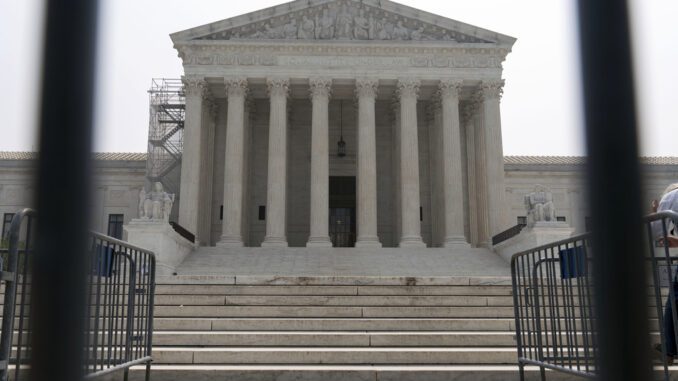
Last Friday’s decision by the Supreme Court in the case of 303 Creative LLC v. Elenis is a huge victory for the free speech rights of every American.
The six-member majority, in an opinion authored by Justice Gorsuch, held that the state of Colorado cannot force website and graphic designer Lorie Smith, doing business as 303 Creative LLC, to design websites for same-sex marriages. The Court reversed a 2-1 decision against Smith by the Tenth Circuit Court of Appeals.
Smith is quite willing to offer her professional services to all people regardless of race, creed, sexual orientation, or gender, but she will not produce content that contradicts her belief that marriage is a union between one man and one woman. The parties stipulated that Smith’s graphic and website design services are “expressive” in nature, and that there are numerous companies in Colorado and across the nation available to same sex couples for custom website design services.
However, the Tenth Circuit decided the case against Smith even though, per Gorsuch, that court “recognized that the coercive elimination of dissenting ideas about marriage constitutes Colorado’s very purpose in seeking to apply its law to Smith.”
The dissenting justices tried to analogize the case to public accommodation laws that guarantee access to restaurants, hotels, etc., but the majority accurately framed the issue this way: Can a State force someone who provides her own expressive services to abandon her conscience and speak its preferred message instead?
Justice Gorsuch concluded the majority opinion with this stirring endorsement of Americans’ precious right of free speech:
“A commitment to speech for only some messages and some persons is no commitment at all. By approving a government’s effort to eliminate disfavored ideas, today’s dissent is emblematic of an unfortunate tendency by some to defend First Amendment values only when they find the speaker’s message sympathetic. But if liberty means anything at all, it means the right to tell people what they do not want to hear [quoting George Orwell].
“In this case, Colorado seeks to force an individual to speak in ways that align with its views but defy her conscience about a matter of major significance. In the past, other States . . . have similarly tested the First Amendment’s boundaries by seeking to compel speech they thought vital at the time. But, as this Court has long held, the opportunity to think for ourselves and to express those thoughts freely is among our most cherished liberties and part of what keeps our Republic strong.
Of course, abiding the Constitution’s commitment to the freedom of speech means all of us will encounter ideas we consider unattractive, misguided, or even hurtful. But tolerance, not coercion, is our Nation’s answer. The First Amendment envisions the United States as a rich and complex place where all persons are free to think and speak as they wish, not as the government demands.”
John Stuart Bruce is an attorney who lives in Raleigh
